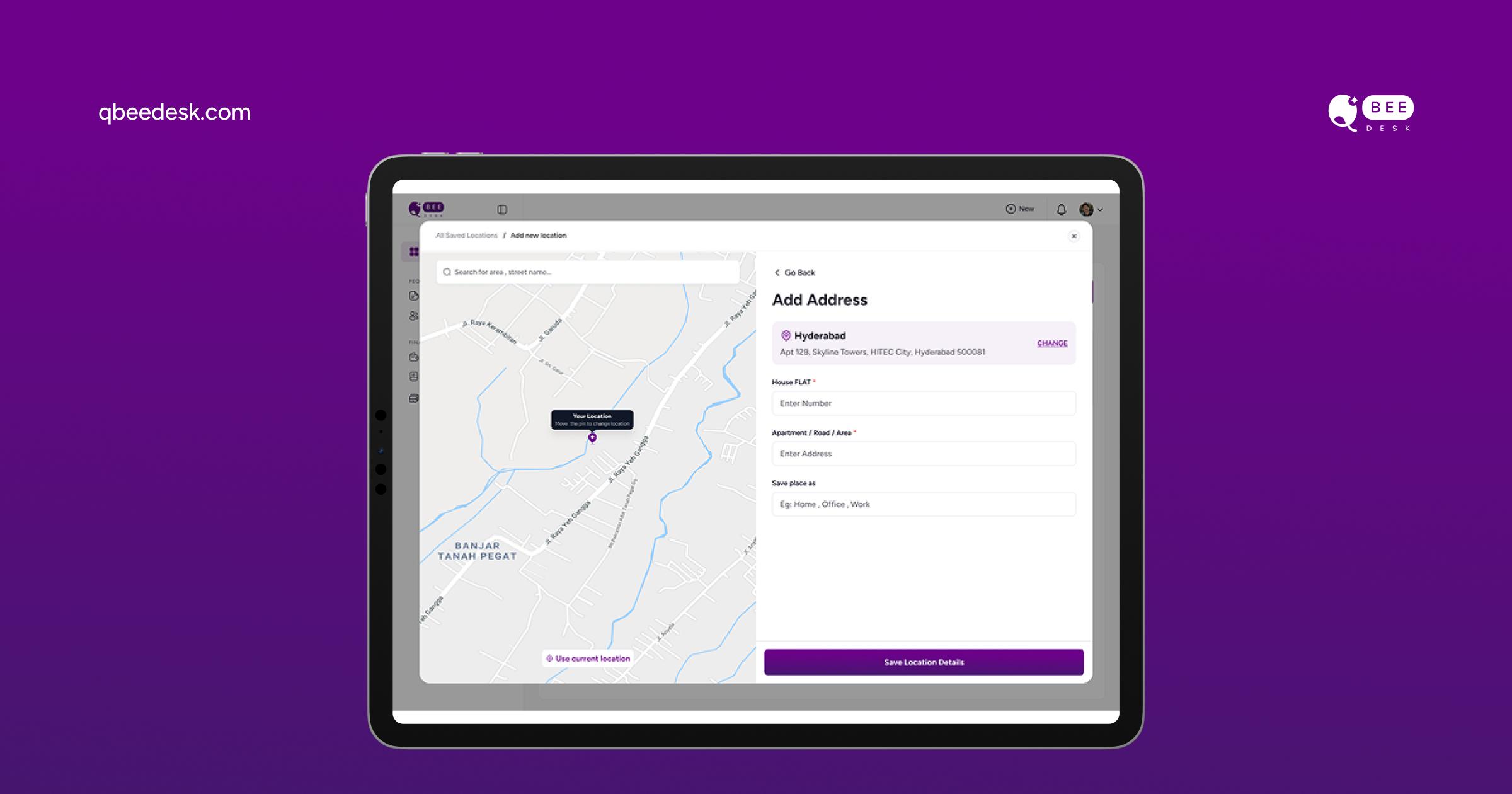
How Geo-Fencing Ensures Compliance and Accountability in Fieldwork
Geo-fencing is transforming how businesses manage on-field employees by leveraging location-based technology to enforce compliance and enhance accountability. This blog will dive deep into how geo-fencing works, its benefits for fieldwork, and practical ways it ensures teams stay on track, meet regulatory requirements, and maintain transparency.
How Geo-Fencing Ensures Compliance in Fieldwork
1. Enforcing Work Zone Adherence
Geo-fencing restricts tasks to specific locations, ensuring employees only perform work within designated areas.
Example: In hazardous industries like oil and gas, geo-fencing prevents workers from entering restricted zones without authorization, ensuring compliance with safety regulations.
Benefit: Reduces risks of non-compliance with site-specific rules or legal requirements.
2. Automating Regulatory Reporting
Geo-fencing logs precise timestamps and locations for tasks, creating verifiable records for audits or regulatory inspections.
Example: A utility company uses geo-fencing to document when technicians arrive at and complete tasks at client sites, ensuring compliance with service-level agreements (SLAs).
Benefit: Simplifies reporting for industries with strict regulations, like healthcare or transportation.
3. Preventing Unauthorized Activities
Geo-fencing can flag when employees deviate from assigned areas, reducing risks of unauthorized side trips or misuse of company time.
Example: A delivery company uses geo-fencing to ensure drivers stick to predefined routes, preventing detours that could violate delivery schedules.
Benefit: Improves compliance with client expectations and business policies.
How Geo-Fencing Boosts Accountability
1. Real-Time Location Tracking
Managers can monitor where field employees are at any given time, ensuring they're at assigned job sites.
Example: A field sales team uses geo-fencing to confirm reps are visiting clients as scheduled, increasing transparency.
Benefit: Eliminates guesswork and builds trust between managers and field staff.
2. Automated Task Verification
Geo-fencing triggers task updates when employees enter or exit a job site, confirming task start and completion without manual input.
Example: A maintenance worker's app automatically logs task progress when they enter a geo-fenced client location, reducing the chance of falsified reports.
Benefit: Ensures accurate task tracking and minimizes disputes over work completion.
3. Time Management and Productivity Insights
Geo-fencing tracks time spent within a work zone, helping managers identify inefficiencies or delays.
Example: A landscaping company utilizes geo-fencing to analyze how long workers spend at each site, optimizing schedules for faster project completion.
Benefit: Provides data-driven insights to hold employees accountable for their time and performance.
Practical Benefits for Businesses and Employees
For Businesses
- Reduced operational costs by minimizing downtime and unauthorized activities
- Improved client satisfaction through timely, compliant task completion
- Enhanced ability to meet industry regulations and avoid penalties
- Better resource allocation based on real-time data
- Streamlined auditing with automated location and time logs
For Employees
- Clear expectations with automated task triggers reduce confusion
- Less micromanagement, as geo-fencing provides passive oversight
- Safer work environments through restricted access to hazardous zones
- Reduced administrative burden with automatic time tracking
- Fair performance evaluation based on objective data
Real-World Examples
1. Construction Industry
A contractor uses geo-fencing to ensure workers only operate heavy machinery within a designated site, complying with safety protocols and preventing accidents.
Results:
- 40% reduction in safety violations
- Zero unauthorized equipment usage
- Complete compliance with OSHA regulations
2. Logistics and Delivery
A courier service sets geo-fences around delivery zones to confirm drivers arrive on time, ensuring accountability to clients and optimizing routes.
Results:
- 95% on-time delivery rate
- 25% reduction in unauthorized route deviations
- Improved customer satisfaction scores
3. Field Service
A plumbing company uses geo-fencing to log technician arrivals and departures, providing clients with accurate service records and ensuring SLA compliance.
Results:
- 100% accurate time billing
- Reduced client disputes by 80%
- Complete SLA compliance
Key Compliance Areas Enhanced by Geo-Fencing
Safety and Security Compliance
- Restricts access to hazardous areas
- Ensures proper safety protocols are followed
- Provides audit trails for safety inspections
- Alerts for unauthorized zone entry
Labor Law Compliance
- Accurate work hour tracking
- Proper break time documentation
- Overtime calculation accuracy
- Fair Labor Standards Act (FLSA) compliance
Service Level Agreement (SLA) Compliance
- Verifies on-time arrivals
- Documents service completion times
- Provides proof of presence at job sites
- Automates SLA reporting
Regulatory Compliance
- Healthcare: HIPAA-compliant visit documentation
- Transportation: DOT hours-of-service tracking
- Utilities: Regulatory reporting automation
- Construction: OSHA compliance verification
Implementing Geo-Fencing for Compliance and Accountability
1. Choose the Right Tools
Select task management platforms with geo-fencing capabilities, like QBeeDesk, that offer:
- Easy geo-fence setup
- Real-time monitoring
- Automated reporting
- Integration with existing systems
2. Set Clear Geo-Fences
Define boundaries based on:
- Job sites
- Client locations
- Restricted areas
- Service territories
Ensure they align with operational needs and are neither too restrictive nor too loose.
3. Train Employees
Educate field teams on how geo-fencing works, emphasizing:
- Its role in safety and efficiency rather than surveillance
- How it protects both the company and employees
- Benefits like reduced paperwork and fair performance evaluation
- Privacy policies and data protection measures
4. Monitor and Optimize
Regularly review geo-fencing data to:
- Refine task assignments
- Improve compliance
- Address workflow bottlenecks
- Identify training opportunities
- Optimize geo-fence boundaries
5. Balance Privacy and Oversight
Be transparent with employees about geo-fencing usage to maintain trust while ensuring accountability:
- Track only during work hours
- Communicate clear data usage policies
- Respect privacy concerns
- Provide opt-in for non-work hours
Challenges and Solutions
Challenge: Employee Resistance Due to Privacy Concerns
Solution: Communicate that geo-fencing is used only during work hours and for work-related purposes, with clear policies in place. Involve employees in the implementation process and address concerns transparently.
Challenge: Technical Issues Like GPS Inaccuracies in Remote Areas
Solution: Use hybrid location technologies (e.g., Wi-Fi or cellular) and test systems in diverse environments. Implement redundancy measures for critical applications.
Challenge: High Setup Costs for Small Businesses
Solution: Opt for QBeeDesk, an affordable geo-fencing tool designed for small teams with scalable pricing and no hidden costs.
Challenge: Integration with Existing Systems
Solution: Choose platforms with robust API support and pre-built integrations with popular business tools.
Measuring Success: Key Metrics
Track these KPIs to measure geo-fencing effectiveness:
| Metric | What to Measure |
|---|---|
| Compliance Rate | % of tasks completed within geo-fenced areas |
| Time Accuracy | Difference between scheduled and actual arrival times |
| Unauthorized Deviations | Number of out-of-zone alerts per month |
| Task Completion Rate | % of tasks verified through geo-fencing |
| Dispute Resolution | Reduction in time/location disputes |
| Regulatory Violations | Compliance incidents before/after implementation |
The Future of Geo-Fencing in Fieldwork
AI Integration
Pairing geo-fencing with AI to predict optimal task schedules and routes based on real-time location data and historical patterns.
IoT Connectivity
Using geo-fencing with IoT devices (e.g., smart tools or vehicles) to automate task verification and equipment tracking, creating a fully connected field operation.
Scalability
As geo-fencing technology becomes more accessible, small and medium businesses will increasingly adopt it for compliance and accountability, leveling the playing field with enterprise competitors.
Advanced Analytics
Future systems will offer:
- Predictive compliance alerts
- Automated corrective action recommendations
- Machine learning-based optimization
- Real-time risk assessment
Industry-Specific Applications
Healthcare
- Patient visit verification
- HIPAA-compliant documentation
- Home health service tracking
- Medical equipment location monitoring
Transportation
- DOT compliance automation
- Driver hours-of-service tracking
- Route adherence verification
- Vehicle maintenance scheduling
Utilities
- Service call documentation
- Emergency response verification
- Regulatory reporting automation
- Asset location tracking
Construction
- Worker safety zone enforcement
- Equipment usage monitoring
- Site access control
- OSHA compliance tracking
Conclusion: A Game-Changer for Fieldwork
Geo-fencing is more than a tracking tool—it's a strategic asset for ensuring compliance and accountability in fieldwork. By automating location-based task management, businesses can:
✅ Reduce errors through automated verification ✅ Meet regulatory standards with verifiable records ✅ Empower employees to work more efficiently ✅ Improve client satisfaction through reliable service delivery ✅ Minimize disputes with objective location data ✅ Enhance safety through zone restrictions
As technology evolves, geo-fencing will continue to redefine how field teams operate, delivering measurable results for businesses and clients alike. The combination of compliance enforcement, accountability enhancement, and operational efficiency makes geo-fencing an indispensable tool for modern field operations.
Ready to transform your field operations with geo-fencing? Explore QBeeDesk's compliance and accountability solutions and experience the power of location-based management.
Start ensuring compliance and boosting accountability today with intelligent geo-fencing technology.
